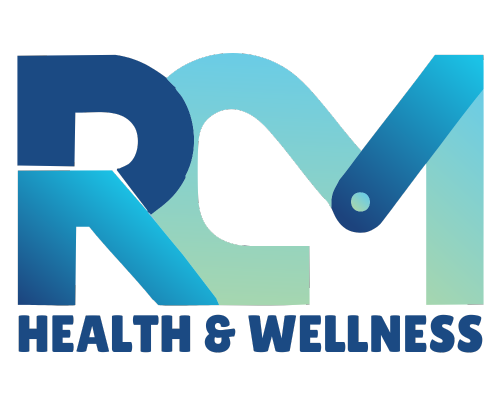RCM Health and Wellness | rcmhealthandwellness.com
Introduction:
You’ve heard the phrase “stressed out,” but have you ever stopped to wonder what’s actually happening in your body when you feel overwhelmed, wired, or completely burned out? The answer lies in a powerful hormone you may not think about much—cortisol.
In this 5-part blog series from RCM Health and Wellness, we’re doing a deep dive into cortisol: what it is, what causes it to rise, what happens when it stays high, and most importantly—what can you do naturally to bring it back into balance.
🧪 What Is Cortisol?
Cortisol is a steroid hormone produced by your adrenal glands, which sit on top of your kidneys. It plays a vital role in your body’s stress response—a mechanism often referred to as the “fight or flight” system.
But cortisol does much more than just respond to emergencies. It helps regulate:
– Blood sugar levels
– Fat Metabolism, protein, and carbohydrates
– Inflammation
– Blood pressure
– Sleep/wake cycles
– Energy production throughout the day
When your body is under acute stress, like slamming on the brakes to avoid an accident, cortisol works with adrenaline to help you react. But when the stress becomes chronic—from overwork, poor sleep, anxiety, or poor nutrition—cortisol can shift from helpful to harmful.
“Cortisol isn’t the villain. It’s the body’s emergency signal. But when that signal gets stuck in the ‘on’ position, problems arise.” — Dr. Rachel Yehuda, Professor of Psychiatry and Neuroscience, Mount Sinai School of Medicine
⏰ The Cortisol Rhythm (aka The Cortisol Curve)
Cortisol follows a natural 24-hour rhythm—highest in the morning to help you wake up and face the day, then gradually tapering off by bedtime to allow for restful sleep.
When your stress response is healthy:
– Cortisol peaks around 7–8 AM
– Slowly declines throughout the day
– Reaches its lowest point between 10 PM and midnight
But when stress becomes chronic or your sleep is irregular, this rhythm gets disrupted. You may feel:
– Tired in the morning
– Wired at night
– Unable to fall asleep or stay asleep
– Craving sugar or caffeine to cope
The table below shows the cortisol rhythm cycle and the relative time frames throughout the day.
| Time of Day | Cortisol Level (relative) |
| 7–8 AM | 🌞 Peak – Wake up alert |
| 12 PM | Moderate – Stay productive |
| 4 PM | Lowering – Energy fading |
| 9–10 PM | Lowest – Prepare for sleep |
😰 Why Cortisol Is a Modern Health Concern
Our ancestors used cortisol to help run from enemies, predators or survive famine. Today, we experience cortisol spikes from:
– Sitting in traffic – major stressor
– Doomscrolling on our phones
– Constant email notifications
– Financial pressures
– Overtraining in the gym
– Poor sleep hygiene
Living in a state of daily low-grade threat (stress) is unhealthy, and our bodies weren’t built to tell the difference between real danger and daily stress.
When cortisol is constantly elevated, it begins to affect nearly every system in the body—including digestion, mood, immunity, and metabolism.
✅ Key Takeaway:
Cortisol is essential for survival—but it becomes dangerous when left unchecked.
Before we can manage it, we need to understand what causes cortisol to rise excessively. That’s exactly what we’ll explore in Part 2: The Top Causes of High Cortisol and What You Can Do to Avoid Them.
👉 Stay tuned and subscribe to RCM’s newsletter so you don’t miss the next post in the series.
🔗 Link to Part 2: https://rcmhealthandwellness.com/blog/Top Causes of High Cortisol
📚 Sources & References:
- Mayo Clinic Staff. (2023, August 25). Cortisol test. Mayo Clinic. https://www.mayoclinic.org/tests-procedures/cortisol/about/pac-20385075
- Cleveland Clinic Staff. (2022, November 15). Cortisol: What It Does & How To Lower Levels. https://my.clevelandclinic.org/health/articles/22187-cortisol
- Harvard Health Publishing. (2020, April). The stress hormone cortisol. https://www.health.harvard.edu/staying-healthy/the-stress-hormone-cortisol
- National Institute of Mental Health (NIMH). (2016). 5 Things You Should Know About Stress. https://www.nimh.nih.gov/health/publications/stress
- Yehuda, R. (2002). Post-traumatic stress disorder. New England Journal of Medicine, 346(2), 108–114
